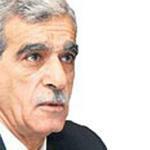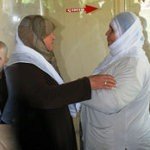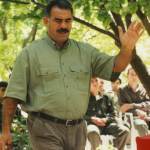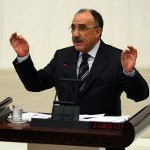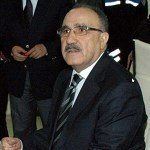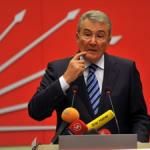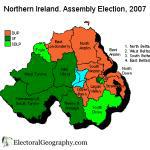Kurdish Question
"Real Issue Is PKK's Participation in Legal Politics"
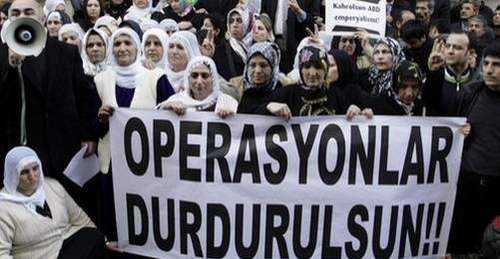
Assoc. Prof. Mesut Yeğen, a sociologist at the Middle East Technical University in Ankara, commented thus on the government's recently announced Kurdish initiative:
"We still have not seen any concrete details about its content; there is no plan, no road map. However, the government has been successful in creating public support for the initiative, which is a considerable achievement."
Referring to the meeting of Minister of the Interior Beşir Atalay with journalists and academics in Ankara last Saturday, the academic said, "What is more important than the content of the meeting is the fact that it was organised at all. It has to be thought of as a step taken to prepare the media and the public."
However, the sociologist believes that the main question still has not been addressed: how to disarm the PKK (Kurdistan Workers' Party) and ensure its participation in legal politics.
Yeğen states that the support base of the PKK is distrustful of the government, and that a meeting between the government and the pro-Kurdish Democratic Society Party (DTP) needs to assuage these worries.
The Nationalist Movement Party (MHP) has reacted negatively to the government's announcements. Yeğen warns that the party's leader, Devlet Bahçeli, must keep his supporters off the streets, and suggests that Bahçeli be told about costs of not solving the Kurdish question:
"Everyone must contribute so that the current positive climate is not poisoned."
Yeğen also made the following points:
Return to status quo would create disappointment: An atmosphere has been created. If nothing is solved and everything stays the same, there would be great disappointment. Expectations have been awakened. If Abullah Öcalan and the DTP keep their demands moderate and still there is a return to the status quo, then the already existing alienation among Kurds will increase. This has to be calculated carefully.
Importance of Öcalan not demanding an amnesty: What Öcalan says has to be listened to. The things he has said so far have contributed positively to the process. ın his last statement he said that he did not expect an amnesty and that the Kurdish question was a "serious issue". These are both important. A lack of insistence on an amnesty is aimed at calming reactions. Second, the solution of the Kurdish question requires, just as Öcalan said, serious reorganisation.
Disarmament of PKK: One important link in the chain is the disarmament and politicisation of the PKK. Disarmament must take place in such a manner that it allows the PKK to join the legal political landscape. Much more important than small reforms in the Kurdish question is the question of what will be done with the PKK. We will have to wait and see what kind of reforms the PKK will demand before accepting disarmament. However, Öcalan's comments seem to suggest that the PKK will not insist on large-scale reforms in the short term.
Gaining the trust of Kurds: I sense great distrust towards the state and the government in the DTP. They are worried that the state sees the Kurdish question as something that can be solved with a few small reforms, and that as soon as the PKK disarms, they will ignore fundamental demands such as education in Kurdish and self-government. If the Prime Minister's meeting with the DTP can assuage such worries, that is good. It is important to placate the nationalist public opinion in Turkey, but the PKK's support base also needs to be convinced. However, we can guess that the meeting between the PM and the DTP is not aimed at this, but is, at this stage, more a symbolic gesture. The meeting shows that the govenrment has started listening to Kurdish politicians as Kurds and as the legal representatives in the Kurdish question.
CHP's attitude depends on armed forces: The Republican People's Party (CHP) has not quite made its stance clear. If, as the government has said, there is coordination between state institutions, that menas that the opinions of the Turkish Armed Forces (TSK) are being taken into account. If the TSK does not clearly reject the process, then the CHP will not obstruct it either. In the meantime, it is significant that Yılmaz Ateş, deputy party chair of the CHP, has appeared on the Kurdish satellite channel Roj TV.
Bahçeli can be told of cost of a deadlock: The MHP is a critical factor. Will it continue its opposition in the way it has done in recent times? If yes, then there is not a big problem. The current protests consist of Bahçeli's angry speeches in inside meetings. But let us hope that the party base does not take to the streets. It is very likely that the government will speak to Bahçeli about the seriousness of the issue behind closed doors. Bahçeli needs to be briefed on what will happen to Turkey if the Kurdish question is not solved. The "determination to fight against terrorism" has done nothing but make the problem bigger. This must be made clear to Bahçeli. In the end, this also has international repercussions. It is possible to outline the benefits of a solution and the costs of a deadlock.
No problem in discussing PKK demands: It is strange that some people are protesting that "PKK demands are being discussed". In the end, the issue is the issue of the PKK and of Kurds. There is no problem with discussing PKK demands for getting them off the mountains. Of course some actors of some political institutions will say, "I have limits, I will only talk so far."
Kurdish MPs in the AKP: They have been in the party for seven years, but they have not been successful in showing the Prime Minister the seriousness of the issue. Only when there were changes in international platforms, and when the elections showed that nothing could be done without considering the DTP or the PKK, only then did the government take steps. However, it is important that the Kurdish MPs of the AKP (Justice and Development Party) have said that Öcalan needs to be considered. It shows that organic bonds with Kurds in the region are still strong, and that Kurds have not been alienated from the PKK. Whomever you ask in the region, they tell you that Öcalan must be taken into consideration.
International factors affecting the process: The fact that the USA are withdrawing from Iraq, as well as the question of energy may have started the process. The USA do not benefit from instability in Iraqi Kurdistan and Turkey. That is why they have shown support for change. Turkey has chosen to create an opportunity out of this new situation. (TK/AG)
KURDISH QUESTION
PKK Ceasefire to be Terminated on 31 October?

KCK CASE
Court Dismissed Request for Defence in Kurdish

7th Istanbul Gathering for Freedom of Thought

CONSTITUTIONAL AMENDMENTS
58 Percent Said "Yes" to Constitutional Reform Package

Rights Organizations 3 Years ahead of Foreign Minister






